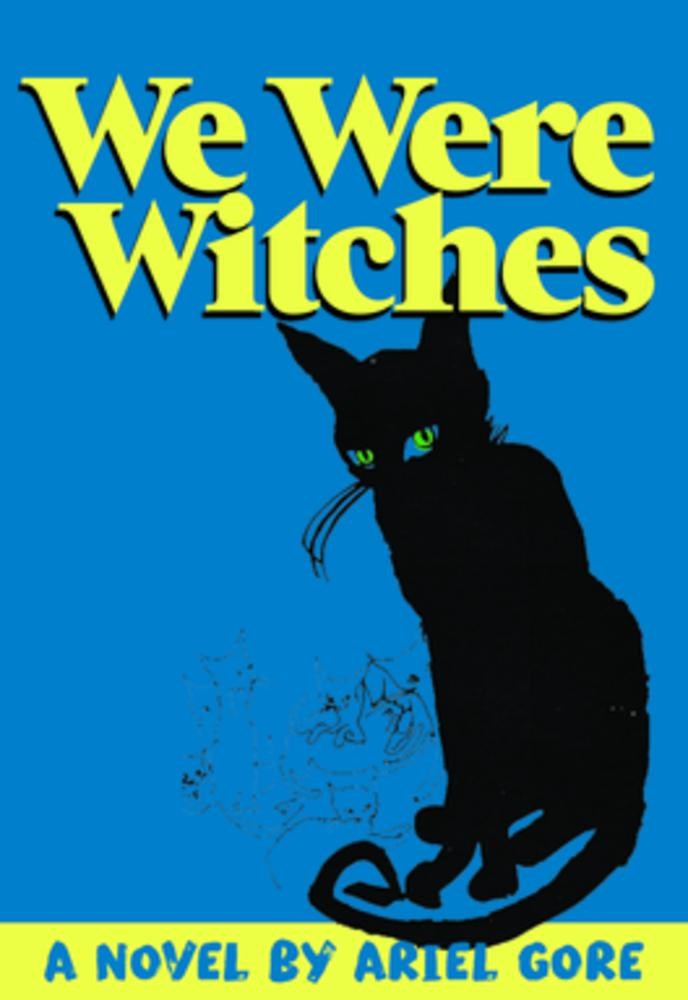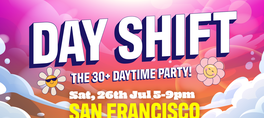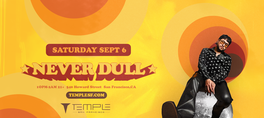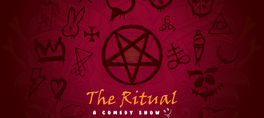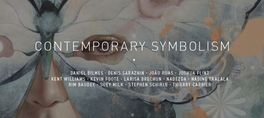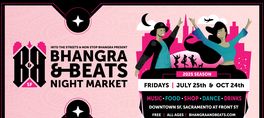Ariel Gore discusses her new novel, We Were Witches.
Praise for We Were Witches
“We Were Witches is raw and truthful, painfully funny, inspiring of outrage, and alive with the wonder and magic of a feminist awakening. One single mom becoming woke, struggling, and triumphing on her own outsider terms, We Were Witches is a new feminist classic, penned by one the culture’s strongest authors at her most experimental and personal.” —Michelle Tea, author of Black Wave
“Ariel Gore’s We Were Witches is one woman’s body refusing to become property, refusing to be overwritten by law or traditions, one woman’s body cutting open a hole in culture so that actual bodies might emerge. A triumphant body story. A singularly spectacular siren song.” —Lidia Yuknavitch, author of The Small Backs of Children
“Forget Freytag's Pyramid (of Predictable Male Prose)—behold Gore’s Upside Down Triangle (of Fierce Feminist Narrative)! Drawing from myth, fairy tale, the wisdom of third wave literary icons, and the singular experiences of a queer single mama artist trying to survive the nineties, We Were Witchesis its own genre, in its own canon. It moves with punk rock grace and confidence, and I totally loved it.” —Kate Schatz, author of Rad American Women A-Z
About We Were Witches
Buying into the dream that education is the road out of poverty, a teen mom takes a chance on bettering herself, gets on welfare rolls, and talks her way into college. But once she’s there, phallocratic narratives permeate every subject, and creative writing professors depend heavily on Freytag’s pyramid to analyze life. So Ariel turns to a rich subcultural canon of resistance and failure, populated by writers like Audre Lorde, Adrienne Rich, Gloria Anzaldúa, Tillie Olsen, and Kathy Acker.
Wryly riffing on feminist literary tropes, We Were Witches documents the survival of a demonized single mother. She’s beset by custody disputes, homophobia, and America’s ever-present obsession with shaming strange women into passive citizenship. But even as the narrator struggles to graduate?often the triumphant climax of a dramatic plot?a question uncomfortably lingers. If you’re dealing with precarious parenthood, queer identity, and debt, what is the true narrative shape of your experience?
show less
Praise for We Were Witches
“We Were Witches is raw and truthful, painfully funny, inspiring of outrage, and alive with the wonder and magic of a feminist awakening. One single mom becoming woke, struggling, and triumphing on her own outsider terms, We Were Witches is a new feminist classic, penned by one the culture’s strongest authors at her most experimental and personal.” —Michelle Tea, author of Black Wave
“Ariel Gore’s We Were Witches is one woman’s body refusing to become property, refusing to be overwritten by law or traditions, one woman’s body cutting open a hole in culture so that actual bodies might emerge. A triumphant body story. A singularly spectacular siren song.” —Lidia Yuknavitch, author of The Small Backs of Children
“Forget Freytag's Pyramid (of Predictable Male Prose)—behold Gore’s Upside Down Triangle (of Fierce Feminist Narrative)! Drawing from myth, fairy tale, the wisdom of third wave literary icons, and the singular experiences of a queer single mama artist trying to survive the nineties, We Were Witchesis its own genre, in its own canon. It moves with punk rock grace and confidence, and I totally loved it.” —Kate Schatz, author of Rad American Women A-Z
About We Were Witches
Buying into the dream that education is the road out of poverty, a teen mom takes a chance on bettering herself, gets on welfare rolls, and talks her way into college. But once she’s there, phallocratic narratives permeate every subject, and creative writing professors depend heavily on Freytag’s pyramid to analyze life. So Ariel turns to a rich subcultural canon of resistance and failure, populated by writers like Audre Lorde, Adrienne Rich, Gloria Anzaldúa, Tillie Olsen, and Kathy Acker.
Wryly riffing on feminist literary tropes, We Were Witches documents the survival of a demonized single mother. She’s beset by custody disputes, homophobia, and America’s ever-present obsession with shaming strange women into passive citizenship. But even as the narrator struggles to graduate?often the triumphant climax of a dramatic plot?a question uncomfortably lingers. If you’re dealing with precarious parenthood, queer identity, and debt, what is the true narrative shape of your experience?
Ariel Gore discusses her new novel, We Were Witches.
Praise for We Were Witches
“We Were Witches is raw and truthful, painfully funny, inspiring of outrage, and alive with the wonder and magic of a feminist awakening. One single mom becoming woke, struggling, and triumphing on her own outsider terms, We Were Witches is a new feminist classic, penned by one the culture’s strongest authors at her most experimental and personal.” —Michelle Tea, author of Black Wave
“Ariel Gore’s We Were Witches is one woman’s body refusing to become property, refusing to be overwritten by law or traditions, one woman’s body cutting open a hole in culture so that actual bodies might emerge. A triumphant body story. A singularly spectacular siren song.” —Lidia Yuknavitch, author of The Small Backs of Children
“Forget Freytag's Pyramid (of Predictable Male Prose)—behold Gore’s Upside Down Triangle (of Fierce Feminist Narrative)! Drawing from myth, fairy tale, the wisdom of third wave literary icons, and the singular experiences of a queer single mama artist trying to survive the nineties, We Were Witchesis its own genre, in its own canon. It moves with punk rock grace and confidence, and I totally loved it.” —Kate Schatz, author of Rad American Women A-Z
About We Were Witches
Buying into the dream that education is the road out of poverty, a teen mom takes a chance on bettering herself, gets on welfare rolls, and talks her way into college. But once she’s there, phallocratic narratives permeate every subject, and creative writing professors depend heavily on Freytag’s pyramid to analyze life. So Ariel turns to a rich subcultural canon of resistance and failure, populated by writers like Audre Lorde, Adrienne Rich, Gloria Anzaldúa, Tillie Olsen, and Kathy Acker.
Wryly riffing on feminist literary tropes, We Were Witches documents the survival of a demonized single mother. She’s beset by custody disputes, homophobia, and America’s ever-present obsession with shaming strange women into passive citizenship. But even as the narrator struggles to graduate?often the triumphant climax of a dramatic plot?a question uncomfortably lingers. If you’re dealing with precarious parenthood, queer identity, and debt, what is the true narrative shape of your experience?
read more
Praise for We Were Witches
“We Were Witches is raw and truthful, painfully funny, inspiring of outrage, and alive with the wonder and magic of a feminist awakening. One single mom becoming woke, struggling, and triumphing on her own outsider terms, We Were Witches is a new feminist classic, penned by one the culture’s strongest authors at her most experimental and personal.” —Michelle Tea, author of Black Wave
“Ariel Gore’s We Were Witches is one woman’s body refusing to become property, refusing to be overwritten by law or traditions, one woman’s body cutting open a hole in culture so that actual bodies might emerge. A triumphant body story. A singularly spectacular siren song.” —Lidia Yuknavitch, author of The Small Backs of Children
“Forget Freytag's Pyramid (of Predictable Male Prose)—behold Gore’s Upside Down Triangle (of Fierce Feminist Narrative)! Drawing from myth, fairy tale, the wisdom of third wave literary icons, and the singular experiences of a queer single mama artist trying to survive the nineties, We Were Witchesis its own genre, in its own canon. It moves with punk rock grace and confidence, and I totally loved it.” —Kate Schatz, author of Rad American Women A-Z
About We Were Witches
Buying into the dream that education is the road out of poverty, a teen mom takes a chance on bettering herself, gets on welfare rolls, and talks her way into college. But once she’s there, phallocratic narratives permeate every subject, and creative writing professors depend heavily on Freytag’s pyramid to analyze life. So Ariel turns to a rich subcultural canon of resistance and failure, populated by writers like Audre Lorde, Adrienne Rich, Gloria Anzaldúa, Tillie Olsen, and Kathy Acker.
Wryly riffing on feminist literary tropes, We Were Witches documents the survival of a demonized single mother. She’s beset by custody disputes, homophobia, and America’s ever-present obsession with shaming strange women into passive citizenship. But even as the narrator struggles to graduate?often the triumphant climax of a dramatic plot?a question uncomfortably lingers. If you’re dealing with precarious parenthood, queer identity, and debt, what is the true narrative shape of your experience?
show less
Date/Times:
1231 9th Avenue, San Francisco, CA 94111
The Best Events
Every Week in Your Inbox
From Our Sponsors
UPCOMING EVENTS
Great suggestion! We'll be in touch.
Event reviewed successfully.
